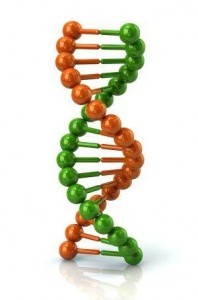What will nutrigenomics and nutrigenetics change in our life
 Nutrigenetics and nutrigenomics definition.
Nutrigenetics and nutrigenomics definition.
Nutrigenetics is a branch of science that aims to discover how people respond to nutrients depending on their genetic variation. Not ever person’s body will react in the same way to the different nutrients in their diet. Due to the differences in people’s DNA, the absorption, transportation and metabolization of nutrients vary from one person to the next.
What is nutrigenomics? Similarly, nutrigenomics is a branch of nutritional genomics aimed at studying how food affects gene expression. Studies look at how particular food or specific diets will impact, either positively or negatively, on a person’s health depending on their genes. This branch of science has influenced the concept of diets personalised according to genotype.

When you think of DNA, probably paternity testing is what may spring to most people mind.
However, DNA testing can tell you so much more than just who your parents are as your genetic makeup can hold the key to many aspects of your overall health.
One of the things that your genetic testing can reveal is what you should and should not be eating.
What is Genotype?
Your genotype is your genetic identity or unique genome. This is all the genes you inherit that determine your physical characteristics and many aspects of your health. Phenotypes are the result of genotypes, and they are what you see in a person’s appearance or their behaviour. However, while physical characteristics are always a result of an individual’s genotype, behaviour, and personal preferences are often a combination of genotypes and life experiences.
What Are the Benefits of Knowing Your Genotype?
Knowing your genotype can have several benefits to your health. Nutrigenetics can help health professionals, such as nutritionists or physicians, to create individual dietary plans and provide health advice based on your genetic makeup. This is based on the information they have about your genes and how it is likely your body will react to the different nutrients in your diet.
Eating the right nutrients and avoiding foods that can potentially cause you harm will benefit your overall health. One of the main areas of health that nutrigenetics can help with is maintaining a healthy body weight as studies show that some people are genetically predisposed to obesity. Following the right eating plan can reduce the risk of a person becoming overweight. This reduces the risk of diabetes, stroke, and cardiovascular disease. An individual who maintains a healthy weight is also less likely to suffer from problems with their joints and will have higher energy levels.
There is also evidence that following dietary advice based on nutrigenetics can help to prevent and treat many diseases. If genetic testing shows that a person is likely to experience certain health problems, then a proper diet based on findings has the potential to reduce the likelihood of this occurring. Where health problems already exist, following an individual diet can reduce the symptoms in many cases.
Nutrigenetics and nutrigenomics are branches of science that are still evolving. However, there is strong evidence to support the use of genetic testing to allow physicians and nutritionists to give patients personalised dietary advice. Not only this can improve many aspects of their health, but it also has the potential to prevent specific problems in the future.
Remember: We are what we eat ;-)

What will nutrigenomics and nutrigenetics change in our life
 Nutrigenetics and nutrigenomics definition.
Nutrigenetics and nutrigenomics definition.
Nutrigenetics is a branch of science that aims to discover how people respond to nutrients depending on their genetic variation. Not ever person’s body will react in the same way to the different nutrients in their diet. Due to the differences in people’s DNA, the absorption, transportation and metabolization of nutrients vary from one person to the next.
What is nutrigenomics? Similarly, nutrigenomics is a branch of nutritional genomics aimed at studying how food affects gene expression. Studies look at how particular food or specific diets will impact, either positively or negatively, on a person’s health depending on their genes. This branch of science has influenced the concept of diets personalised according to genotype.

When you think of DNA, probably paternity testing is what may spring to most people mind.
However, DNA testing can tell you so much more than just who your parents are as your genetic makeup can hold the key to many aspects of your overall health.
One of the things that your genetic testing can reveal is what you should and should not be eating.
What is Genotype?
Your genotype is your genetic identity or unique genome. This is all the genes you inherit that determine your physical characteristics and many aspects of your health. Phenotypes are the result of genotypes, and they are what you see in a person’s appearance or their behaviour. However, while physical characteristics are always a result of an individual’s genotype, behaviour, and personal preferences are often a combination of genotypes and life experiences.
What Are the Benefits of Knowing Your Genotype?
Knowing your genotype can have several benefits to your health. Nutrigenetics can help health professionals, such as nutritionists or physicians, to create individual dietary plans and provide health advice based on your genetic makeup. This is based on the information they have about your genes and how it is likely your body will react to the different nutrients in your diet.
Eating the right nutrients and avoiding foods that can potentially cause you harm will benefit your overall health. One of the main areas of health that nutrigenetics can help with is maintaining a healthy body weight as studies show that some people are genetically predisposed to obesity. Following the right eating plan can reduce the risk of a person becoming overweight. This reduces the risk of diabetes, stroke, and cardiovascular disease. An individual who maintains a healthy weight is also less likely to suffer from problems with their joints and will have higher energy levels.
There is also evidence that following dietary advice based on nutrigenetics can help to prevent and treat many diseases. If genetic testing shows that a person is likely to experience certain health problems, then a proper diet based on findings has the potential to reduce the likelihood of this occurring. Where health problems already exist, following an individual diet can reduce the symptoms in many cases.
Nutrigenetics and nutrigenomics are branches of science that are still evolving. However, there is strong evidence to support the use of genetic testing to allow physicians and nutritionists to give patients personalised dietary advice. Not only this can improve many aspects of their health, but it also has the potential to prevent specific problems in the future.
Remember: We are what we eat ;-)



















